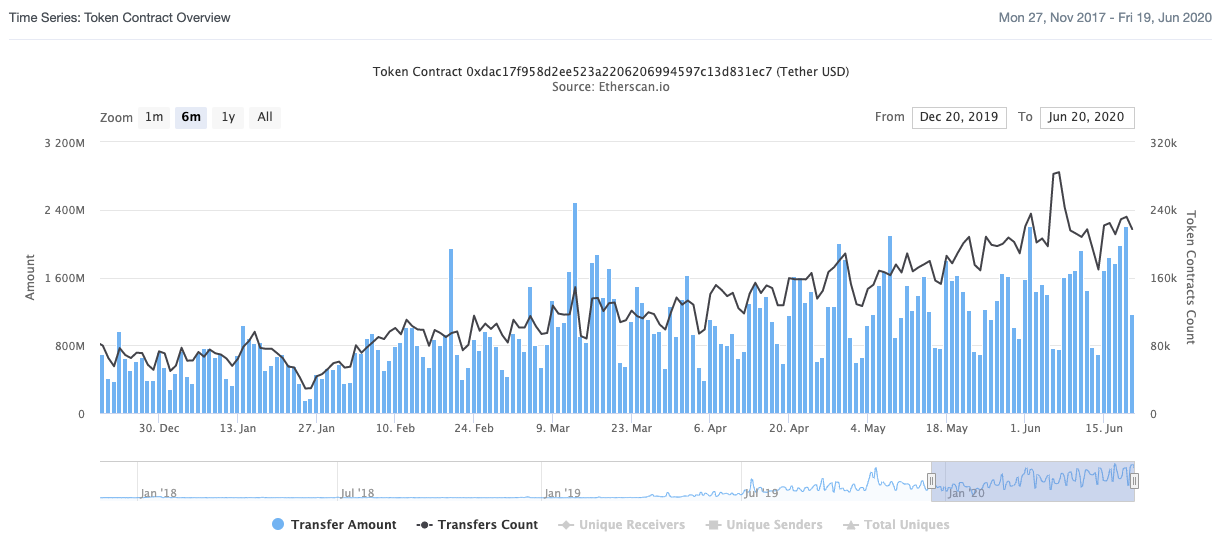- Ethereum miners voted to increase the gas limit per block from 10 million to 12.5 million causing controversy in the community.
- Ethereum Core developer Péter Szilágy expresses concern about the health of the Ethereum network in the long term.
One of the requests made by a section of the Ethereum community in early June has been met. The Ethereum miners have voted to increase the gas limit per block from 10 million to 12.5 million. The move was made to reduce the high fees that Ethereum has been showing due to network congestion.
As reported by CNF, Ethereum’s network fees have quadrupled since April. The average price of Gas has varied from 30 to 50 Gwei in recent months. In contrast to previous periods of high congestion, they have recorded a Gas price between 10 and 15 Gwei.
Fees have risen due to an increase in on chain activity in the network. This is the consequence of the high use of the stablecoin Tether and its high consumption of Gas. The stablecoin consumes an average of 39.8 Gwei and in previous weeks has spent close to 10,000 ETH. The following graphs show how it has increased usage and the amount of Tether sent through Ethereum.

Source: https://etherscan.io/token/0xdac17f958d2ee523a2206206994597c13d831ec7#tokenAnalytics
Possible consequences of increasing the gas limit
One of the sectors most affected by the increase in fees was the different DeFi protocols and the game dapps on Ethereum. Both need stable fees to operate properly, or else they may become too expensive to remain profitable.
Therefore, these sectors will benefit from the increase of the Gas limit and the fee reduction. The decentralized exchange 1inch.exchange was one of the promoters of the Gas limit increase and celebrated through its Twitter account. A reduction in fees could increase trade with tokens based on the Ethereum blockchain and have a positive impact on their performance.
Congratulation to the @Ethereum community with 12M block gas limit! ????@Cointelegraph @VitalikButerin pic.twitter.com/xTsnrwDdr6
— 1inch.exchange (@1inchExchange) June 19, 2020
However, when it was proposed to increase the gas limit per block, Ethereum co-creator Vitalik Buterin warned that the increase could force the network and raise the risk of a DoS (Denial of Service) attack. Buterin was referring to a common problem when an increment in network gas limits occurs.
In the past, the Ethereum hash rate has been reduced by similar votes because of the reduced profitability for certain miners. As the processing time for each block is raised, the miners need to work extra to get rewards for validating the blocks. As a result, the less efficient miners decide to capitulate their position and as the hash rate is reduced, the network is less secure.
Therefore, Ethereum Core developer Péter Szilágy was critical of the vote and expressed concern about the long-term health of the network. Szilágy said:
The Ethereum miners don’t give a fuck about the long term health of the network nor about DoS attacks.
Last updated on
